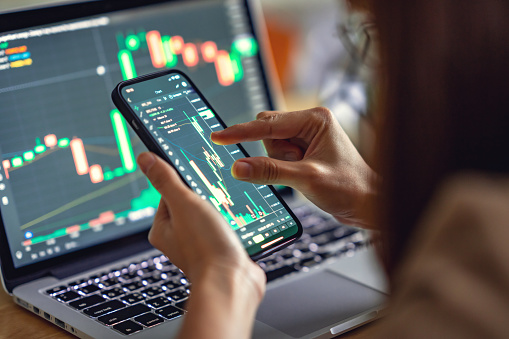Forex vs. stocks: What you should know
Do you want to invest but need help figuring out where to start? Trying to choose between forex trading and stocks can seem like a daunting task. With so many options, it takes time to know precisely what the right move is for your financial goals and needs.
In this article, we will break down the basics of both investing vehicles so you can decide whether forex or stock trading should be part of your portfolio. We’ll discuss everything from risk factors and available resources to different markets and tax-advantaged opportunities presented by each path. Let’s get into it – read on for an overview that dives deep into which option may best suit you.
What is forex trading, and how does it work?
Forex trading, also known as foreign exchange trading or currency trading, is a globally decentralised market for buying and selling currencies. This market processes trillions of dollars daily, making it the world’s largest and most actively liquid financial market. Forex trading works by simultaneously buying one currency while selling another; as one currency decreases in value, another will increase to offset its losses.
By leveraging a small amount of capital, traders can control more prominent market positions – allowing them to take advantage of even minor price changes. Though forex trading comes with a certain amount of risk, its potential rewards are arguably worth the attention and study that savvy investors will dedicate to mastering its nuances.
The benefits of forex trading over stock trading
When compared to stock trading, forex trading offers many advantages:
The main benefit of forex trading is the opportunity to take advantage of rising and falling markets. While stock traders can only do well when stock prices rise, forex traders can potentially benefit no matter which direction the market moves. It is because forex pairs are always traded in pairs – so if one currency goes down, another must go up to balance things out.
Another significant benefit of forex trading is that it’s a much more liquid market than the stock market. The stock market can be very volatile, with prices changing rapidly and unexpectedly, making it difficult to buy or sell a stock at the price you want. However, because someone is always willing to buy or sell currencies on the forex market, getting in and out at a price close to your desired target is much easier.
Finally, investors can access the best Australian trading platform for forex trading with no commissions or fees, meaning you can make trades without paying extra costs. It can be a massive benefit if you want to invest regularly or for an extended period.
The risks associated with forex trading
Although forex trading can be a lucrative investment opportunity, it has its risks. The most common risk associated with forex trading is leverage. Leverage enables traders to control significant market positions without putting up all of the capital required to open those positions. Although this can be beneficial when things go in your favour, it can also work against you if the market moves against you – as even small price movements can cause huge losses on leveraged trades.
Another significant risk associated with forex trading is that of liquidity. Because currency prices fluctuate so rapidly and unpredictably, there’s always the chance that you will be unable to close out a trade at the price you want – or, worse yet, unable to close out a trade.
Finally, forex trading is associated with specific tax implications that must be considered when setting up an investment plan. For instance, traders may need to pay capital gains taxes on earnings from trading currencies, depending on their country of residence. It’s essential to consult a financial advisor or tax professional to ensure that all applicable taxes are paid.
How to get started with forex trading
If you’re interested in getting started with forex trading, the first step is to open an account with a reliable broker. It will allow you to access the best Australian forex trading platforms and make trades on the market. When choosing a broker, look for one that offers competitive spreads, low fees, and a user-friendly interface.
Once your account is set up, it’s time to learn about how forex trading works. Numerous free resources available online can help you understand the basics of currency trading, including video tutorials and eBooks. Additionally, many brokers offer educational materials such as webinars or seminars – these can be excellent sources of information when learning how to trade forex successfully.
Finally, remember to practise. Most brokers offer demo accounts that let you test your trading strategies using virtual money before putting real money on the line. This invaluable learning tool can help you avoid costly mistakes as you become more experienced in forex trading.

